
Resistance, in its many forms, is taking place all over Palestine. Palestinians from Gaza to Israel are waking up to a renewed sense of unity. (Photo: www.middleeasteye.net)
Resistance to Israeli occupation can and must take many forms
by Susan Abulhawa
Propaganda for world consumption aside, Israelis have never minced their words about their ultimate aim of Eretz Israel, so-called “Greater Israel”, from the Mediterranean to the River Jordan. This is alluded to in the Israeli flag, the two blue lines of which each represent a body of water, with only Jews between them, symbolised by the lone Star of David. Their opposition to a viable, contiguous, autonomous Palestinian state has always been explicit and adamant. Everything they’ve done to-date has been to achieve Jewish dominance in all of Palestine and the region as a whole, demographically in the former as well as economically and militarily in the latter.
The Palestinian body and stubborn will to exist have posed the only hindrance to these supremacist aspirations. However, through rapacious construction of illegal Jewish-only colonies, regular military destruction of Palestinian institutions, extrajudicial executions, massive random incarceration, institutionalised oppression in all aspects of life, social engineering and more, Israel has effectively managed Palestinian resistance. All of Israel’s wars, except the Yom Kippur War, were initiated by the Zionist state for the purpose of regional hegemony and territorial expansion. Expecting Israel to negotiate in good faith for Palestinian autonomy, therefore, is naive in the extreme.
Also Read: Palestine Solidarity Month: A Collective Movement for Al-Aqsa and Palestine’s Freedom
Equally absurd is the belief that world powers, including the United States, are honest brokers for justice which might usher-in even the minimal dignity of demilitarised Palestinian self-determination on the mere 22 per cent of historic Palestine comprising the West Bank and Gaza.
It has been clear to most of us for a very long time that the Palestinian struggle must be waged on the grassroots level, both in Palestine and abroad. Israel’s current onslaught on Gaza, a repetition of the carnage inflicted on this seaside prison twice before in the past six years, should remove all doubt that we have to rely solely on ourselves and people of conscience around the world to effectuate our own liberty. As with every national liberation struggle, Palestinian resistance occurs on multiple levels and is evolving constantly in response to ever-unfolding challenges and changing political winds. The reality now is that we cannot wait for world leaders to save us and time is running out.
The older generation with indigenous memory, knowledge and wisdom is dying; the land is shrinking under our feet; and it is being sucked dry, making desert what once bloomed. Now, watching Gaza burn and bleed again and again, the national impulse to organise and intensify resistance feels more urgent. What follows, in a top line overview, is an attempt to summarise current and proposed resistance strategies, including boycott tactics, active resistance within Palestine, including sabotage operations, my layperson’s grasp of legal pursuits, and the need for an inclusive, representative leadership body.
1. Boycott
Also Read: Hassan al-Turabi: A Controversial Thinker from Sudan
The Boycott Divestment and Sanctions (BDS) campaign has been one of the most effective Palestinian resistance strategies in recent times. The movement has grown exponentially since its inception in 2005, making huge strides into mainstream discourse and political action around the world. Its success has proven enough of a threat to Israeli hegemony to prompt a well-funded, multi-pronged attack on BDS organisations and individual supporters, including smear campaigns, law suits and surveillance.
However, despite the success of BDS internationally, boycott tactics are not well adopted at home within Palestine. It has been suggested that this is due to the post-Oslo logic and ensuing realities in the homeland which have worked to minimise Palestinian national values regarding the struggle for liberation. However, a more likely explanation has to do with the logistics of internal boycott and the lack of local pro-boycott organising.
In addition to Mahmoud Abbas’s public opposition to boycotting Israel, Palestinians in the West Bank, including Jerusalem, and Gaza, are both physically and economically captive, often having no choice but to buy Israeli products. Despite this economic bondage, there is still much that can be done to spur a culture of boycott within the homeland. Spending by Palestinians has been estimated at billions of dollars annually for Israel’s economy. Campaigning and organising for the removal of Israeli products, particularly those for which there are local alternatives, could prove to be a fruitful resistance tactic, as it would have an immediate economic impact on some Israeli companies. It would also contribute to fostering less reliance on Israel and greater self-sufficiency.
2. Active and passive resistance, sabotage and “tatbeesh” in the West Bank, Palestine
Also Read: Who Exactly is the RSF Group Shaking Sudan?
Active and passive resistance against the Israeli occupation are deeply rooted in Palestinian society. The passive resistance of sumud, or steadfastness, can be found in daily activity, where Palestinians continue to attend school, work, till their lands, marry, give birth and live their lives despite the daily humiliations of endless waiting, checkpoints, colour-coded IDs and license plates, or confinement to a specific radius.
Active resistance has been armed and unarmed/non-violent, although the former has diminished greatly in the past decade, with the exception of acts of self-defence by resistance groups in Gaza, including Hamas, the PFLP (Popular Front for the Liberation of Palestine) and Islamic Jihad. Non-violent resistance tactics, while largely invisible, have a long tradition in Palestinian society, where they have developed naturally over the decades, taking many forms. The most widely noted in the west has been the example of weekly protests against Israel’s apartheid wall in Bil’in.
Somewhere between these two forms of active resistance are tatbeesh and sabotage. Tatbeesh refers to rock-throwing demonstrations, where Palestinian youth hurl stones at invading Israeli jeeps, tanks and armed soldiers. This tactic, although symbolic, is embedded deeply in Palestinian resistance. However, it is costly in terms of human life, expected (even welcomed) by bored occupation soldiers, and sometimes works to dissipate the anger and frustration of Palestinian youth, which could be harnessed for more strategic resistance.
Unlike non-violent, armed or tatbeesh resistance, sabotage is not widespread; where it happens, it has an impact, even if disorganised or reactionary. Sabotage resistance targets the apparatus of Israeli oppression, taking care not to harm life. In Palestine, this apparatus is vast, encompassing a sophisticated infrastructure of apartheid that relegates the Palestinian natives to encircled, deprived ghettos in order to accord comfort, exclusivity and privilege to Jews.
Also Read: The Two-State Solution (Palestine–Israel) in Historical Perspective
It includes a web of Jewish-only roads connecting Jewish-only colonies with Jerusalem, a network of checkpoints and roadblocks, the 20-foot concrete separation wall, watchtowers and electric fences. These are what lie above ground; below lies a system of pipes that divert Palestinian water to Israel and its illegal colonies. There are cables and other connections that run beneath our feet to maintain these segregated colonies, built on confiscated Palestinian land. This infrastructure curtails Palestinian liberty, movement and access to natural resources; it should be a legitimate target.
The aim of sabotage resistance would be to make it very costly and inconvenient for Israel to maintain the physical framework of apartheid. At a minimum, Palestinians could remove the unmanned roadblocks that wreak havoc for so many communities when they’re set up.
3. Resistance within 1948 Palestine
While Palestinians with Israeli citizenship (“1948 Palestinians”) have the right to vote in the Zionist state, they are subject to at least 50 racist laws that exclude them from rights and privileges afforded to Jewish citizens, including the right of return, the right to reclaim property, to buy or lease land designated for exclusive Jewish use, to live with his/her spouse in Israel if he or she has Palestinian ID, and more.
Also Read: Enchanted by K-Dramas, Dragged into Slander: Time for Muslims to Rise!
Although this segment of Palestinian society is often overlooked, the 1948 Palestinians have waged their own resistance against institutionalised Israeli racism and often demonstrate (and are killed) in solidarity with Palestinians in Gaza or the West Bank when Israel embarks on military sprees which terrorise the local populations. A recent noteworthy example of resistance includes the inspiring efforts of the villagers of Kufr Bir’em to reclaim their original village. Greater communication, coordination and reciprocal solidarity with 1948 Palestinians is needed.
4. Legal Remedies
Although Israel has waged an absurd “lawfare” campaign against Palestinians and their supporters abroad, by attempting to equate political activism with anti-Semitism, Palestinians have not explored legal options in international courts sufficiently to hold Israel to account for its criminal actions. In 2009, the Palestinian Authority (PA) abandoned a rare opportunity to refer an audit of Israeli war crimes and crimes against humanity, as outlined in the UN’s Goldstone Report following the 2008-2009 massacre in Gaza, to the UN Security Council for further action. Despite this apparent mistake by the PA, ample legal venues remain viable options for the Palestinians.
In a recent essay, Richard Falk, legal scholar and former UN Special Rapporteur on Palestinian human rights, outlined the potential advantages and challenges to pursuing legal action at the International Criminal Court (ICC) to address Israeli violations of the UN Charter and the Geneva Conventions. According to Falk, despite the associated challenges and pitfalls, “the evidence overwhelmingly supports basic Palestinian allegations” including, among others, the crime of apartheid; “recourse to the ICC remains a valuable trump card in the PA deck… playing it might begin to change the balance of forces bearing on the conflict that has for decades now denied the Palestinian people their basic rights under international law.”
Also Read: Creating Opportunity and Avoiding Misery; Lesson Learn on Waste Recycling Issue
There have been previous calls to prosecute Israelis at the ICC, but thus far no concrete action has been taken. On the other hand, a July 2014 letter to UN Secretary General Ban Ki-moon from legal experts and legal networks called on the UN and contracting parties to the Geneva Convention to take action pursuant to the International Court of Justice (ICJ) Advisory Opinion, which deemed Israel’s construction of a separation wall on occupied Palestinian land to be illegal.
Legal remedies are also available to individual Palestinians who are citizens of other countries. The recent beating of 15-year old US citizen Tariq AbuKhdeir by Israeli police, recorded on camera, raises the possibility of filing civil suits in America against Israel, the greatest single recipient of US foreign aid. Further, based on private correspondence with legal experts, there may be a legal basis for law suits against Netanyahu and the many Israeli ministers and Knesset members who called openly for violence, murder and revenge against Palestinians.
Their hysteria fuelled a national clamour for vengeance that led to the beating of AbuKhdeir and the gruesome burning to death of his cousin Muhammad AbuKhdeir. Additionally, there may be a legal precedent for US citizens of Palestinian descent to sue Israeli institutions in respect of stolen property.
Finally, the concept of universal jurisdiction opens endless possibilities to prosecute Israelis for war crimes or companies for complicity in war crimes. The most famous application of universal jurisdiction was the Spanish prosecution of Augusto Pinochet for crimes committed in Chile. The potential (or absurdity) of pursuing such avenues is at least worthy of further discussion and strategising among legal experts and activists concerned with holding Israel to account for its crimes.
Also Read: Between the Treaty of Hudaybiyyah and Ceasefire in Gaza
5. Inclusive, comprehensive elections for representative unity leadership
Whatever it was or hoped to be, the Palestinian Authority (PA) has become a reactionary, ineffective bureaucracy. It has proven itself woefully incapable of protecting Palestinians from Israeli terror and unable or unwilling to implement or advance resistance initiatives. In fact, the PA’s ironclad security coordination with Israel’s occupation forces has made Palestinians more vulnerable, and on several occasions it has acted to sabotage promising avenues of resistance. In addition to thwarting action on the Goldstone Report, they have also been a hindrance to the growing success of the BDS campaign, speaking publicly against it.
The PA’s rejection of the 2006 election results that replaced Fatah with Hamas members in leadership positions severed the West Bank from Gaza. Since then, the Palestinian populace has longed for what has been termed a “unity government” that would bring Fatah and Hamas together. While uniting these two leading Palestinian political parties is an important step, their coalescence represents neither Palestinian unity nor government.
An autonomous government cannot exist under occupation; at most it becomes a subcontractor of the occupation. Nor can Fatah and Hamas alone represent the Palestinian people. For a start, there are other Palestinian parties to be considered. More importantly, voices from other segments of Palestinian society, including refugees, diaspora Palestinians and 1948 Palestinians must be heard and their opinions included. In all of these segments, space (currently unavailable or restricted) must also be carved out for women and the youth. The need to hold truly inclusive national elections cannot be overstated.
Also Read: Peace Cannot Be Achieved Without a Palestinian State
Palestine is being wiped off the map. Our communities are dying a slow death of deliberate attrition, neglect and ghettoisation. Israel continues to steal our lands, heritage, homes and history, and while Palestinian resistance is the only reason that its colonial project is still incomplete, time is not on our side. What we do have on our side, though, our truest strength, is truth and the moral high ground of an indigenous people fighting a system of colonial apartheid and ethnic cleansing. All resistance tactics available to us that maintain this fundamental strength should be explored or intensified. (T/Middle East Monitor/SA/E01)
Mi’raj Islamic News Agency (MINA)

*Susan Abulhawa is a Palestinian-American writer and human rights activist. She is the author of a bestselling novel, Mornings in Jenin, and the founder of a non-governmental organisation, Playgrounds for Palestine.
Source: https://www.middleeastmonitor.com/articles/guest-writers/13156-resistance-to-israeli-occupation-can-and-must-take-many-forms
Also Read: Facing the Wall: Netanyahu and Ambitions Built on Blood





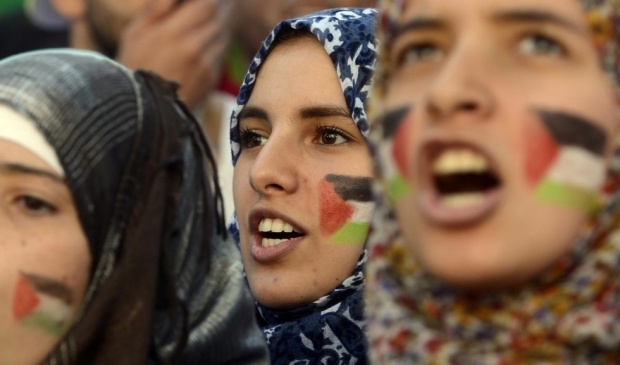

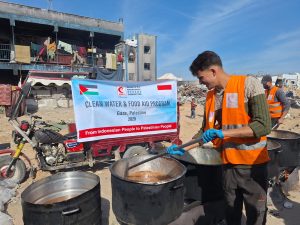
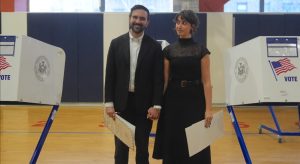
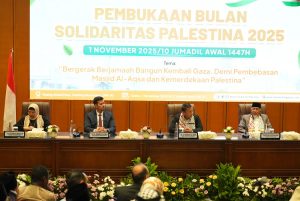

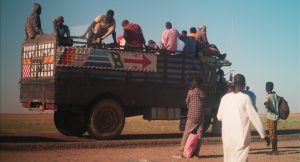
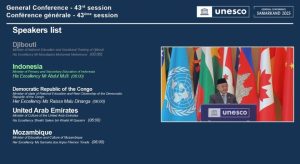
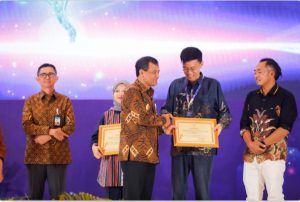
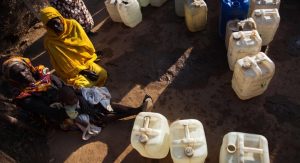

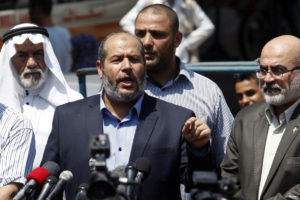
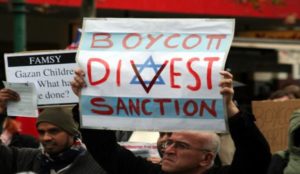

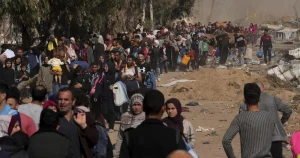
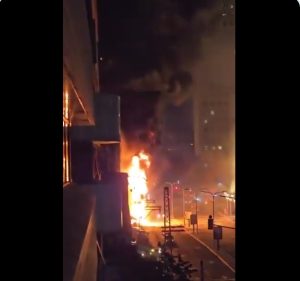




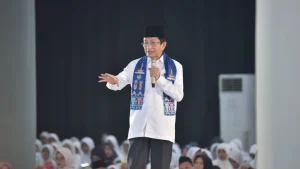
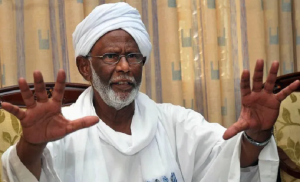







 Mina Indonesia
Mina Indonesia Mina Arabic
Mina Arabic